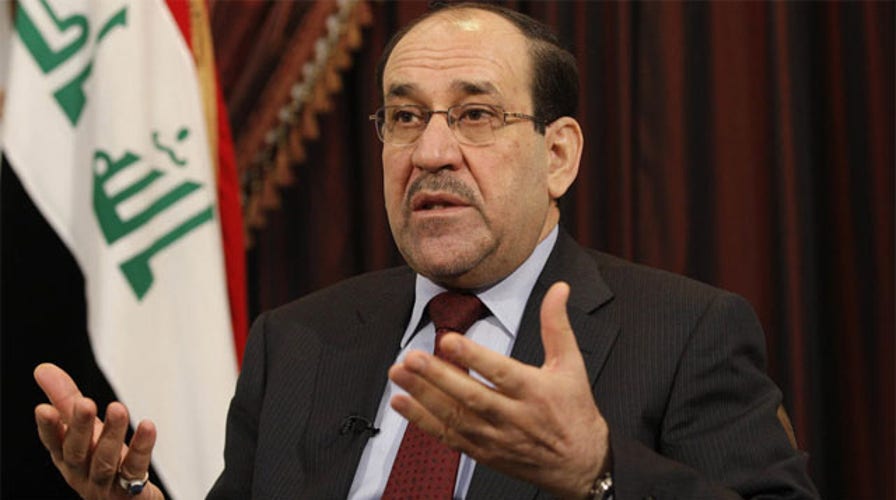How a change in political leadership will help Iraq
Nouri al-Maliki's policies come into question
U.S. lawmakers and allies are pressing the Obama administration to publicly withdraw its support for embattled Iraqi Prime Minister Nouri al-Maliki, whom Washington increasingly sees as either unable or unwilling to reconcile with Iraq's Sunni minority and stabilize the country politically, according to a published report.
The Wall Street Journal reports that U.S. officials have indicated their desire for Iraq's political parties to form a new government without Maliki that would comprise representatives of the country's Sunni and Kurdish communities. The hope of U.S. officials is that such a government could stem Sunni support for the Al Qaeda-aligned insurgency of the Islamic State in Iraq and the Levant (ISIS) that has seized large sections of territory in Iraq's north and west and attacked Iraq's largest oil refinery at Beiji.
"The Maliki government, candidly, has got to go if you want any reconciliation." Senate Intelligence Committee chair Dianne Feinstein, D-Calif., told a congressional hearing Wednesday.
According to the Journal, that outlook is also shared by U.S. allies in the Middle East, particularly Saudi Arabia and the United Arab Emirates. Some Arab allies reportedly are pushing for the White House to withdraw its public support for Maliki in exchange for providing help in stabilizing Iraq.
The Shiite Maliki's party received the most votes in Iraq's parliamentary election this past April, but it did not receive enough to form a majority government. Maliki's efforts to find partners in a coalition government have so far been in vain.
Arab officials believe that Maliki's actions over the past five years have laid the groundwork for the ISIS insurgency by firing resentment among Iraq's minority Sunnis. Maliki has been accused of jailing popular Sunni protest leaders, blocking power-sharing proposals and taking most key cabinet positions in government for himself.
"We believe that Maliki's sectarianism and exclusion of Sunnis has led to the insurgency we are seeing," a senior Arab official told the Journal. "He unfortunately managed to unite ISIS with the former Baathists and Saddam [Hussein] supporters."
Meanwhile, Britain's The Independent newspaper reported Thursday that U.S. officials have told their Iraqi counterparts that Maliki must leave office if the U.S. is to undertake any military action to halt the advance of ISIS.
President Barack Obama is currently weighing options for military action in an attempt to stabilize Iraq. On Wednesday, Obama met with all four top Republican and Democratic leaders of the House and Senate to update them on the administration's plans.
Senate Minority Leader Mitch McConnell, R-Ky., said that Obama "basically just briefed us on the situation in Iraq and indicated he didn't feel he had any need for authority from [Congress] for the steps that he might take."
House Minority Leader Nancy Pelosi, D-Calif., said that she did not believe that Obama needed congressional authorization "to pursue the particular options for increased security assistance discussed today," but also noted that she "[looked] forward to additional consultation."
Pelosi's statements were echoed by Senate Majority Leader Harry Reid, D-Nev., who noted that the president "he is not currently considering actions that would require Congressional approval but was very clear that he would consult with Congress if that changed."
Obama is thought to be leaning away from pursuing airstrikes, but one senior official told Fox News that the president appears to be leaning toward sending roughly 100 special forces into the region. Officials also confirmed to Fox News Wednesday that the U.S. is flying F-18 surveillance missions over Iraq from the aircraft carrier USS George HW Bush, which is currently in the Persian Gulf.
Fox News' Justin Fishel contributed to this report.





